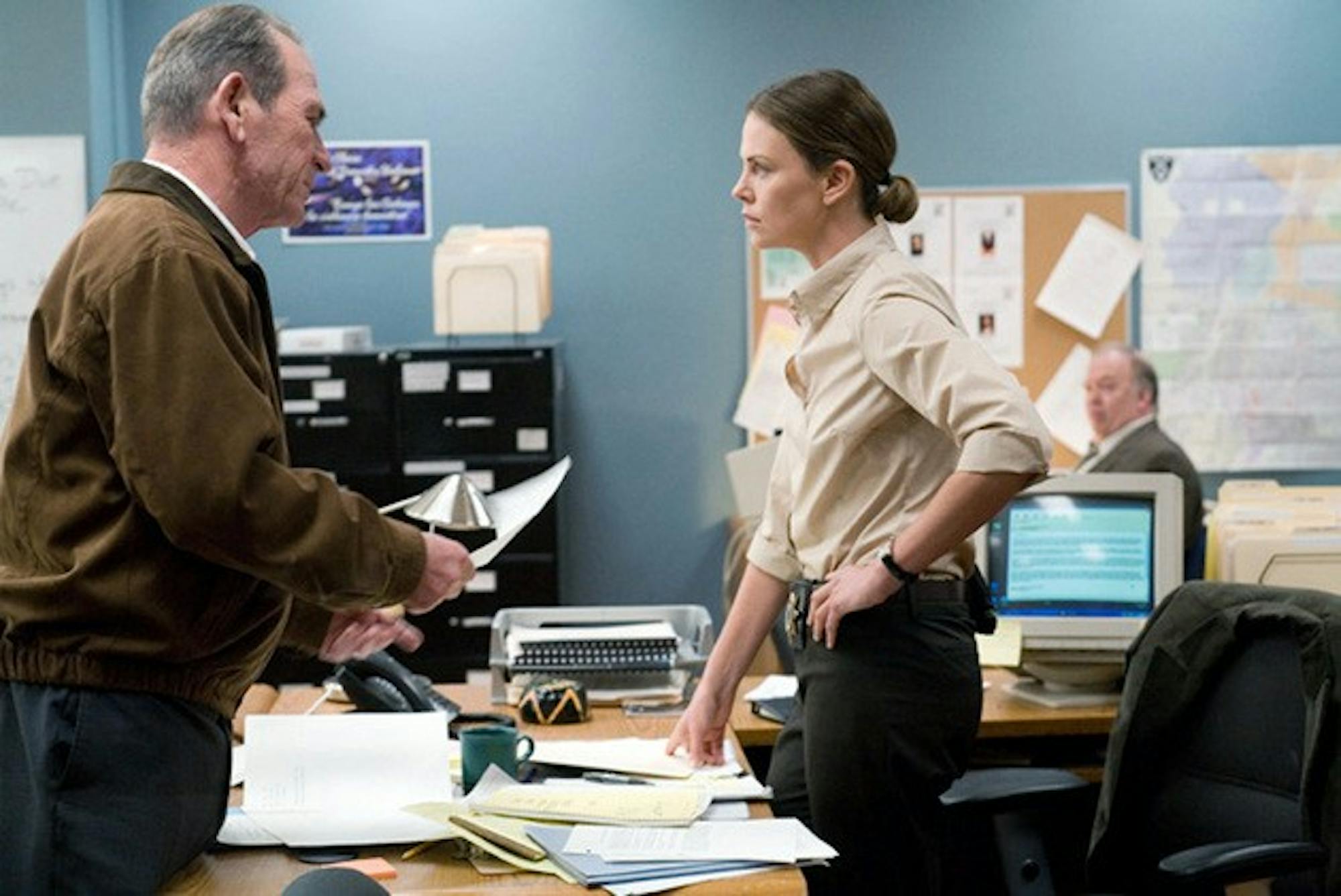And who better to bear these emotional scars than Tommy Lee Jones? The venerable actor has played his share of comedies, but his granite-hewn features seem most at home when employed in the expression of unspoken grief. Jones' stoicism reaches an apex of sorts in the form of Hank Deerfield, a gravel hauler and Vietnam veteran who receives a phone call one morning informing him that his son Mike (Jonathan Tucker) has gone AWOL upon arriving home from Iraq. With barely a word to his wife Joan (Susan Sarandon), Hank climbs into his pick-up truck and drives two days to Fort Rudd to investigate his son's whereabouts.
At the base, Hank is introduced to tight-lipped soldiers who seem to know more than they say. An apathetic police department shrugs off his missing-person report, and local bartenders glance blankly at pictures of his missing son. Hank's search takes him to strip clubs, fast food joints and eventually the morgue, where he finds Mike's corpse brutally burned and mutilated. Once the body is discovered, the authorities gently tell Hank to go on home, that they'll take it from here. But even after a heartbreaking phone call to his wife, Hank refuses to leave. His search for his son is over; his search for the killer has just begun.
"In the Valley of Elah" is loosely based on the real-life murder of specialist Richard Davis, as reported by journalist Mark Boal in May 2004. Adapting a story like this poses an obvious challenge; how do you condense the myriad complicated emotions surrounding the Iraq War into the narrative of a murder mystery? In the wrong hands, the plot could have slipped easily into the realm of slick exploitation -- "CSI" with a topical twist -- but for the most part, director Paul Haggis avoids sensationalism and offers instead a meditative exploration of grief. Hank eventually discovers the identity of Mike's killer, but the revelation isn't nearly as interesting as what he fails to find: A sense of meaning behind his son's senseless death.
Therein lies the genius of "In the Valley of Elah." With gracefulness and tact, the film elevates the humble tragedy of Hank and his son to the level of national allegory. Stoic and proud, Hank is the patriotic civilian, searching desperately to find meaning behind his senseless loss. As viewers, we share his frustration. Thousands of American troops have been sent to their deaths over the past four and a half years, yet to this day no one has been able to produce a convincing justification for their sacrifice. If the ending of Haggis's film refuses to offer closure for this terrible grief, it is because there is no closure to be had. That's kind of the point, really.
Needless to say, the film is a work of harrowing emotional complexity. I wish I could say it was perfect. But alas, Haggis intermittently loses grasp of his film's contemplative tone and lapses into cliche. A thematically pertinent subplot about a local domestic abuse victim is the film's most obvious element, and therefore the least interesting. A scene in a topless bar has a snickering, sophomoric quality that feels alien to the rest of the film. A hyper-stylized flashback to Mike's experience in Iraq feels similarly misplaced.
Then again, I probably wouldn't have minded if Haggis had just pointed his camera at Tommy Lee Jones and left it there for two hours. Jones has that invaluable ability shared by a handful of American screen actors to convey volumes of emotion through apparent inertia. He's never taken an acting class, and his lack of formal training is one of his best qualities; his performances always have an unembellished veracity to them, unmarred by artifice or ego. Together with Charlize Theron -- whose supporting turn as a local homicide detective is every bit as compelling -- Jones takes command of "In the Valley of Elah," his dramatic sincerity steering the film away from its occasional moments of pat.
There are those who will accuse "In the Valley of Elah" of politicizing tragedy, but the message of the film transcends politics. At the movie's core is a quiet meditation on the pain and frustration wrought by unnecessary death. It's an imperative artistic statement, one that needs to be made during this dark time in our nation's history. "In the Valley of Elah" may not be the best film of the year, but I suspect it will be remembered as one of the most important.




![HONEYJOON_[Ines Gowland]_4.PNG](https://snworksceo.imgix.net/drt/7af2efc8-1bd1-4001-b754-e2718ce663b8.sized-1000x1000.PNG?w=1500&ar=16%3A9&fit=crop&crop=faces&facepad=3&auto=format)